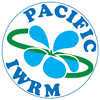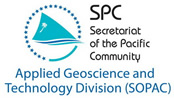|
Media Release: New film highlights water issues and solutions in Tuvalu
Funafuti, Tuvalu, March 5, 2012: A new film released today looks at the serious water issues facing Tuvalu and how the Global Environment Facility supported Pacific Integrated Water Resources Management project (GEF Pacific IWRM) is working to address these problems by installing composting toilets on the main island of Funafuti.
The film “Falevatia: A toilet for our future” shows how composting toilets can help conserve water and minimise threats to the environment, food security and human health.
Tuvalu recently experienced a devastating drought, which resulted in a national emergency and millions of dollars spent on an international relief effort to get water to the small isolated country.
According to Pisi Seleganiu, project manager for Tuvalu’s GEF Pacific IWRM demonstration project, the current flush and septic systems used in the atolls are ill suited to Tuvalu’s geography and scarce water supplies.
“Water is such a critical issue here in Tuvalu, yet we continue to use flush toilets that use up to a third of a family’s water supply,” Mr Seleganiu said. “Septic systems are also poorly constructed and much of the waste inside them seeps out polluting what little groundwater we have. Septic pollution is also killing the reefs in our lagoons, meaning fishermen have to spend more on fuel to travel further away to catch fish.”
Composting toilets, on the other hand, use almost no water and produce compost that can be used to enrich the poor atoll soils so families can plant their own crops.
“A lot of the fresh vegetables we get are imported and expensive,” Mr Seleganiu said “The compost from these toilets and the water saved enables households to grow their own food. It is a great cost saving to them.”
Mr Seleganiu admits getting people to adopt composting toilets was no mean feat but that once people saw how they worked and understood the benefits, demand for the toilets increased.
“Of course when you talk about new toilet technology, people are concerned about whether or not they smell, if the compost is safe and if they are easy to maintain,” Mr Seleganiu explained. “But the GEF Pacific IWRM demonstration project held workshops, ran awareness campaigns, and have so far constructed 29 demonstration toilets out of a planned 40. People now want these toilets and we have co-financing to construct another 60, so 100 all up.”
The work in Tuvalu has also generated a lot of interest around the Pacific. Tonga has built demonstration toilets, Nauru has installed them in schools and the Marshall Islands are planning construction soon.
“I hope this video generates more interest in what we are doing and helps people understand the benefits of composting toilets,” Mr Seleganiu said.
“Increased climate variability means we could have stronger and more severe droughts. The threat climate change poses to Tuvalu is significant,” Mr Seleganiu said. “These toilets are a way for us to find our own solutions to some of the impacts of climate change by helping us conserve water, increase food security, and protect the environment.”
The video was produced by ReRu Productions and can be viewed here: http://www.pacific-iwrm.org/Tuvalu-ECOSAN.html
The Global Environment Facility (GEF) is funding the regional GEF Pacific IWRM project to build the capacity of Pacific Island countries to manage water resources. 13 national demonstration projects are being run in 12 Pacific countries to show the practical benefits of integrated water resources and wastewater management.
The project is officially entitled “Implementing Sustainable Water Resources and Wastewater Management in Pacific Island Countries” and is executed regionally through the Secretariat of the Pacific Community’s Applied Geoscience and Technology Division (SOPAC). In partnership with SOPAC, the United Nations Development Programme (UNDP) and the United Nations Environment Programme (UNEP) are implementing agencies for the project.
ENDS
Contact: Tiy Chung, SOPAC Communications Advisor, Phone: +679 338 1377 (ext 290) or Mobile: +679 998 7586
|









